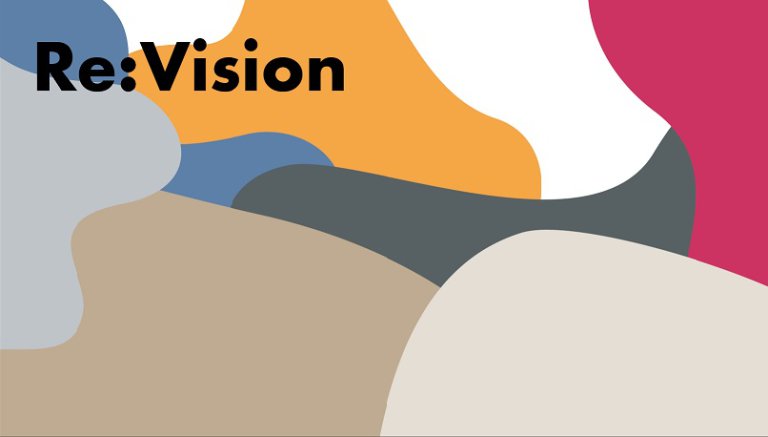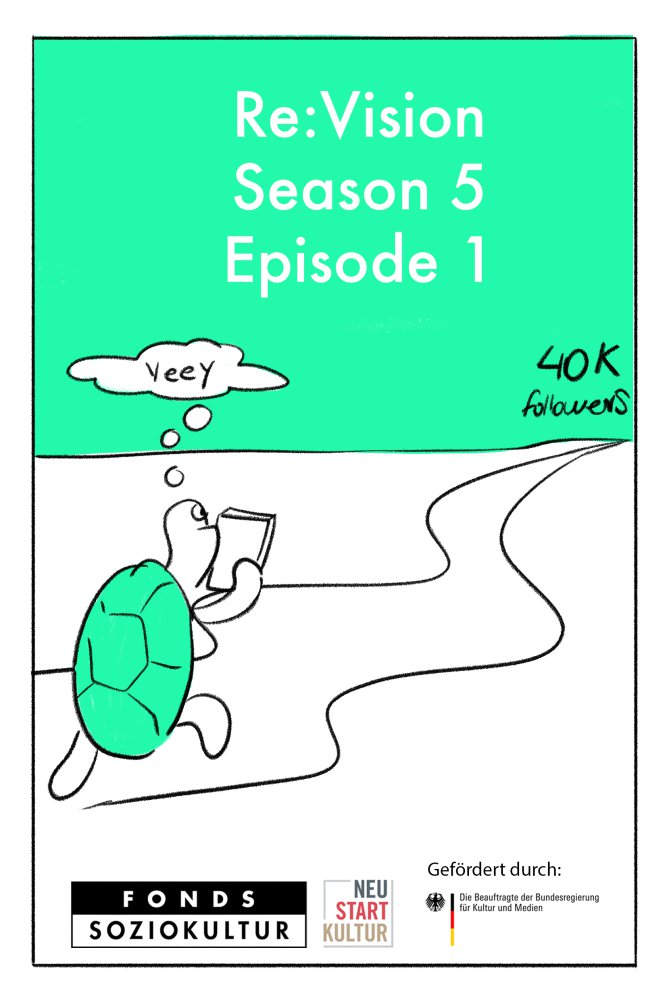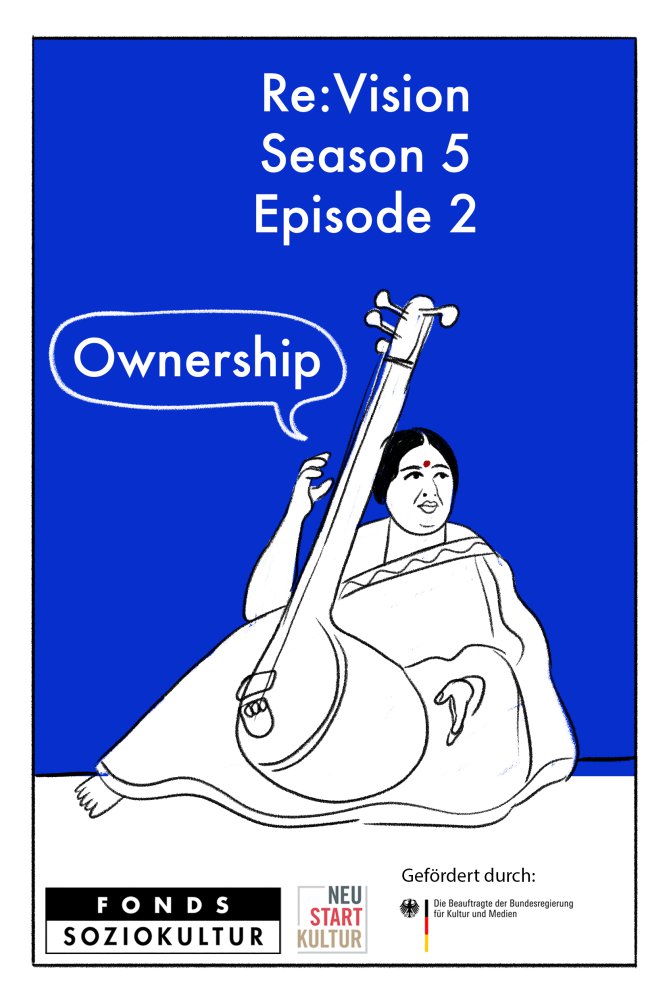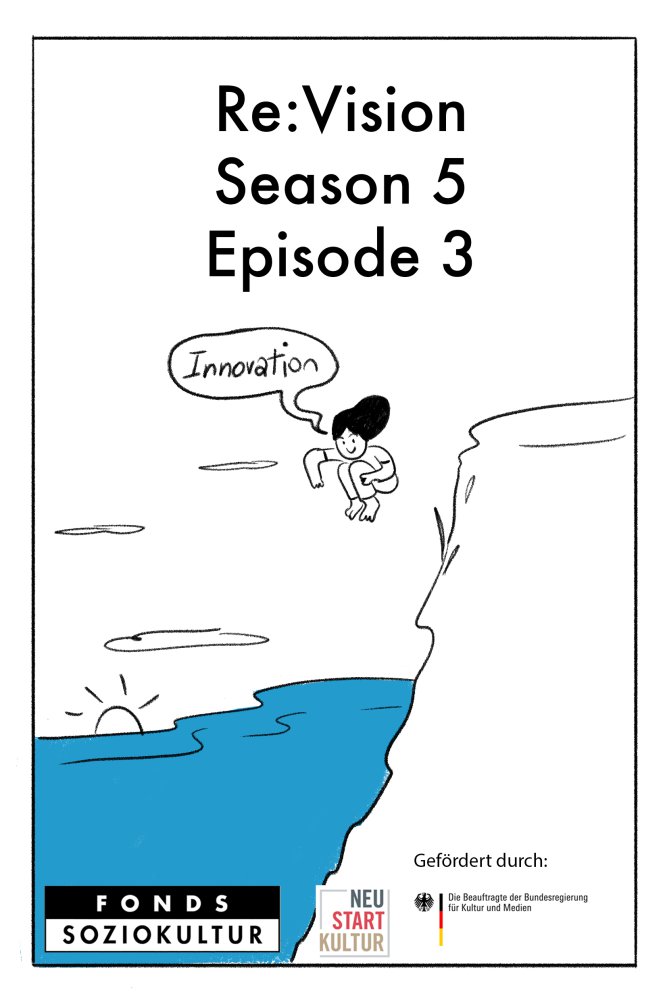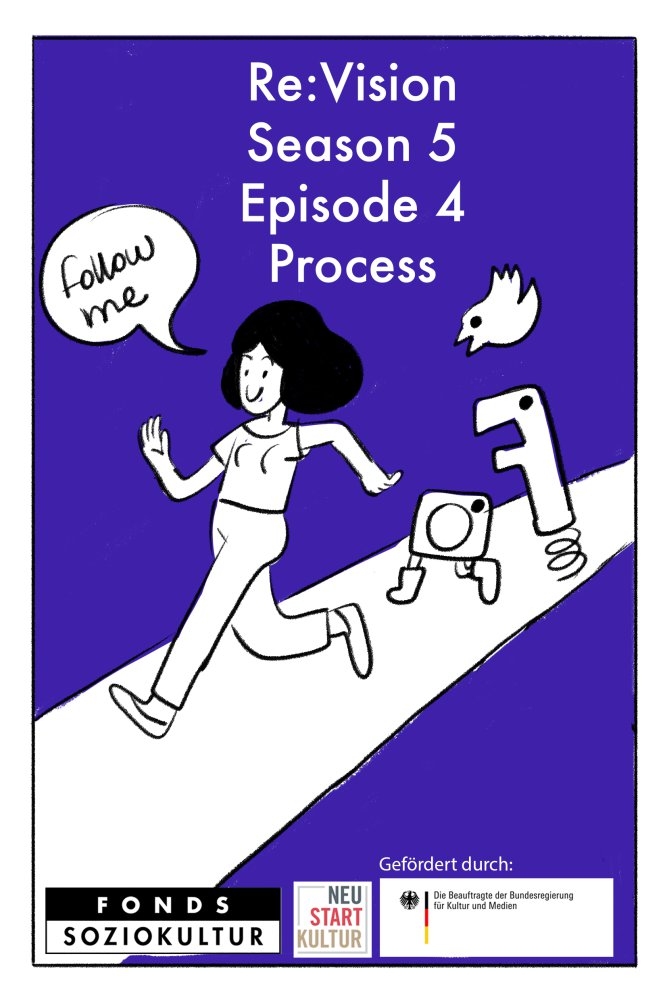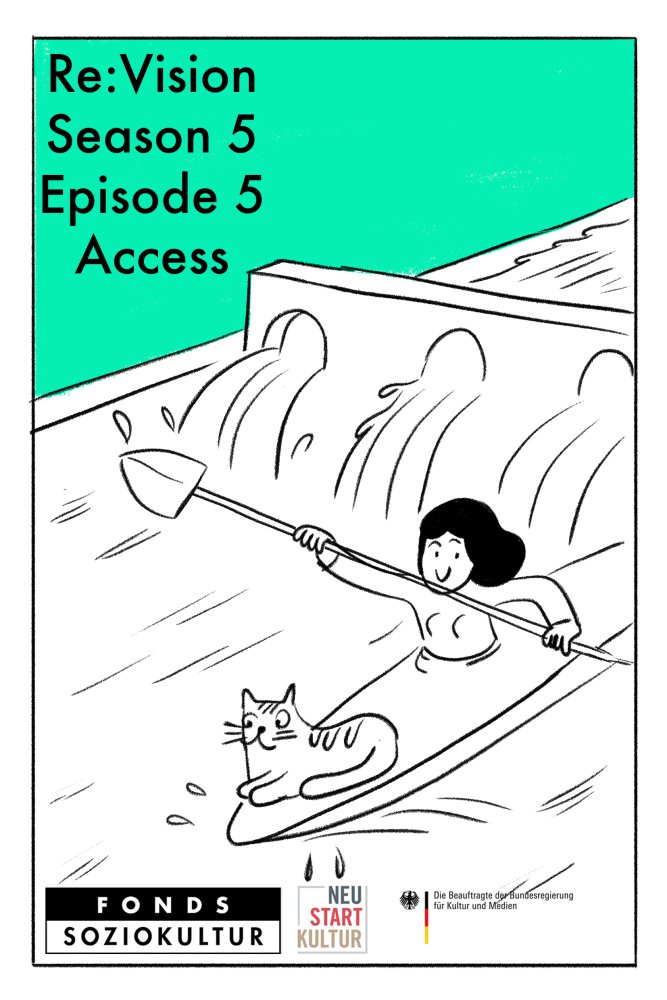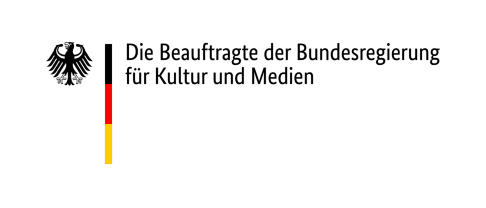Re:Vision Season 5 - Ta4, Digitalität + Soziokultur (Digitality + Socioculture)
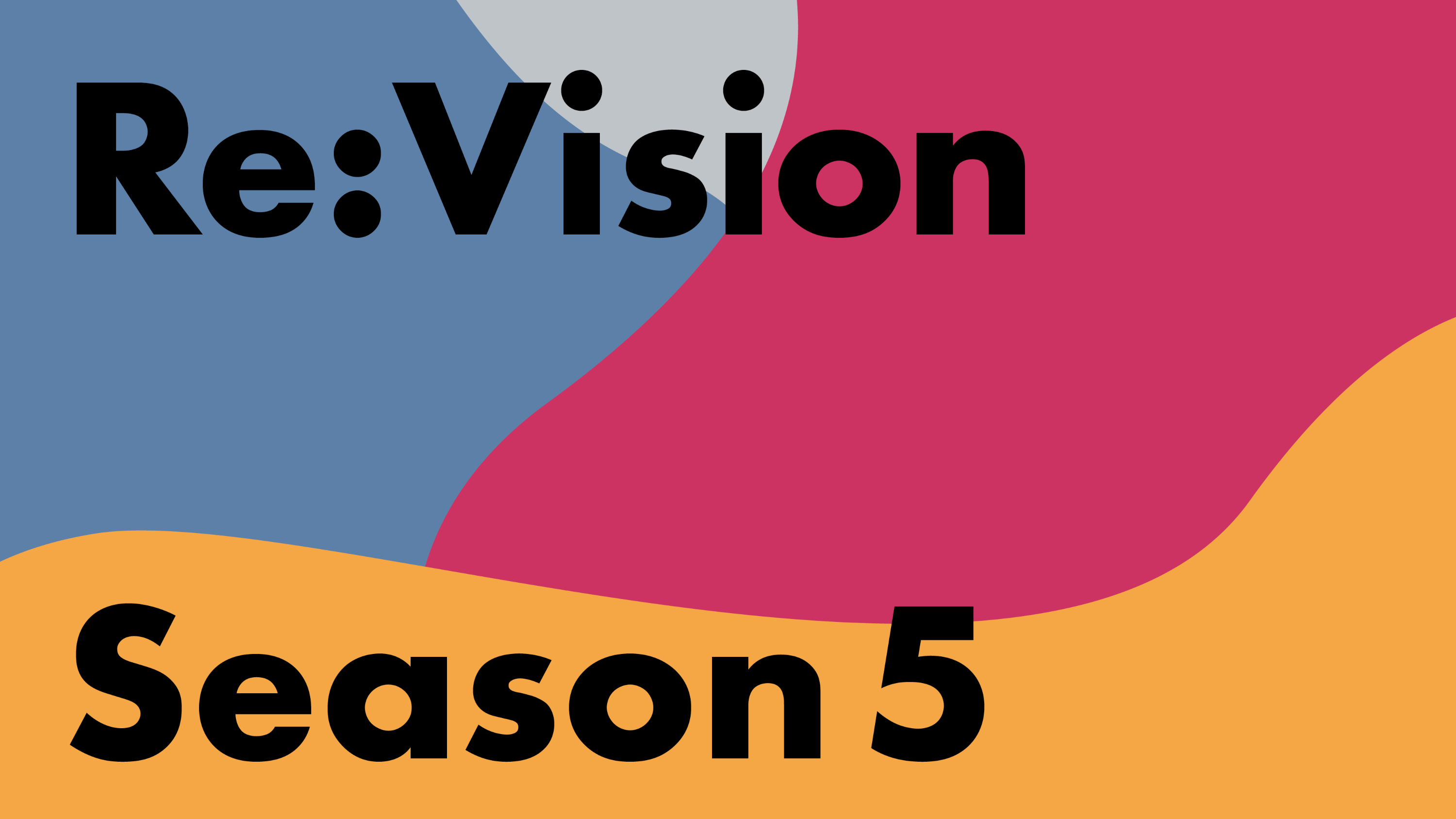
Season 5 of the Re:Vision series of workshops accompanied project coordinators who had been awarded grants within the scope of the Ta4 topic-specific call for applications, “Digitalität + Soziokultur”, for the NEUSTART KULTUR special programme. 44 project coordinators associated with the 81 projects approved registered to participate in the workshops.
See the programme booklet for further information on the topics and speakers. COMICS and PODCASTS present the highlights of the episodes plus the interviews which Fonds Soziokultur staff conducted with each guest speaker.
Programme booklet
COMICS
Episode 1: Platforms
with Wana Udobang (Nigeria)
Season 5 began by debunking a number of myths. Does digitisation require a large investment of time and money or is there another way? Should we invest in a website or a social media platform? Should we grow quickly or slowly? Do we need to chase the public or should we wait for them to come to us? And, last but not least, what is “success” in the context of digital platforms? These were just some of the questions which our participants explored with artist, poet and journalist Wana Udobang, who has developed the pan-African digitally supported project “Culture Diaries” over a period of five years.
Episode 2: Ownership
with Shubha Mudgal (India)
How can creative freedom and ownership co-exist on digital platforms? What steps are required within the scope of a project to protect content when working independently, as part of a collective or as the representative of an organisation? Shubha Mudgal, a musician who has won numerous awards, shared her experience with, and understanding of, digital rights. She also talked about ground-breaking music label Underscore Records and its pioneering work, which provides a community of female artists across India with fair, inclusive access to digital media.
Episode 3: Innovation
with Zoe Seaton (Northern Ireland)
All of us are forced to work with digital media, both in our role as a part of creative processes and as users. Should we be “digital first” or “digital enabled”? Although these terms sound similar, they actually imply very different ways of thinking and working. In this episode Zoë Seaton, artistic director of the Big Telly Theatre Company, explained the radical steps which she took at the beginning of the first COVID lockdown in 2020 to create critically acclaimed, digital productions which changed the company’s entire way of working.
Episode 4: Process
with Isabel Cebrián (Spain)
There are many persistent myths relating to digital working methods - ranging from agile working to co-production. What is their meaning for creative practitioners? And what impact can they have on our projects? Within the scope of her creative practices in Spain Isabel Cebrián regularly uses digital methods to bring together a variety of communities to collaborate on, and participate in, cultural projects. She explained how the digital process helps her achieve a real impact.
Episode 5: Access
with Arunava Sinha (India)
There can be no doubt that digitisation offers unprecedented freedom and flexibility. We must, however, recognise our power and privileges if we are to be able to create equal access to culture. How can we use digital options to create equal conditions for our communities? In this episode, translator Arunava Sinha explained how digitisation helps him to work decentrally, which in turn allows him to transfer decision-making power and ownership to the community.


